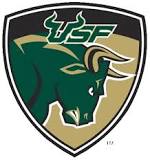Access to Resources for Patients With PTEN Hamartoma Tumor Syndrome
| Status: | Recruiting |
|---|---|
| Healthy: | No |
| Age Range: | 18 - Any |
| Updated: | 2/9/2019 |
| Start Date: | May 11, 2018 |
| End Date: | April 2019 |
| Contact: | Miranda Williams, MS |
| Email: | Miranda.Williams@epi.usf.edu |
| Phone: | 8133969155 |
The purpose of this study is to gain a better understanding of access to clinical and
research resources for families of children affected with a phosphatase and tensin homology
(PTEN) mutation. Ultimately, the researchers hope to be able to use this information to
develop a standard of care for affected individuals and their family members. Family
members/legal guardians of an individual with a PTEN mutation enrolled in the Rare Diseases
Clinical Research Network (RDCRN) Contact Registry will be invited via email to participate
in this study.
research resources for families of children affected with a phosphatase and tensin homology
(PTEN) mutation. Ultimately, the researchers hope to be able to use this information to
develop a standard of care for affected individuals and their family members. Family
members/legal guardians of an individual with a PTEN mutation enrolled in the Rare Diseases
Clinical Research Network (RDCRN) Contact Registry will be invited via email to participate
in this study.
The purpose of this study is to investigate access to clinical care and clinical research for
patients with PTEN hamartoma tumor syndrome. This research will entail an anonymous online
survey sent to families/caretakers of affected children. The survey will inquire: (1) basic
clinical information about the child, such as diagnoses (both genetic and
neurodevelopmental), level of functioning (estimated IQ) (2) clinical specialists that the
child sees or needs to see (3) how families learn about clinical trials/research relevant to
their child (4) basic demographics about the parent/caretaker completing the survey.
Specifically, this survey will collect information pertaining to:
- Number of affected children in household
- PTEN mutation type of affected children
- Age and gender of affected children
- Age, neurodevelopmental disorders, medical problems, IQ, and access to clinical care
(specialists currently being seen, specialists not able to see and why) of most affected
child
- Research methods and mediums for disorder-specific treatment options for affected
children
- Reasons behind not participating in clinical research options
- Facts (gender, age, if PTEN mutation carrier, work status, relationship to affected
children, days per week of caregiving responsibilities, education level) about
participant completing survey.
In total, the survey should take no more than 15 minutes to complete.
patients with PTEN hamartoma tumor syndrome. This research will entail an anonymous online
survey sent to families/caretakers of affected children. The survey will inquire: (1) basic
clinical information about the child, such as diagnoses (both genetic and
neurodevelopmental), level of functioning (estimated IQ) (2) clinical specialists that the
child sees or needs to see (3) how families learn about clinical trials/research relevant to
their child (4) basic demographics about the parent/caretaker completing the survey.
Specifically, this survey will collect information pertaining to:
- Number of affected children in household
- PTEN mutation type of affected children
- Age and gender of affected children
- Age, neurodevelopmental disorders, medical problems, IQ, and access to clinical care
(specialists currently being seen, specialists not able to see and why) of most affected
child
- Research methods and mediums for disorder-specific treatment options for affected
children
- Reasons behind not participating in clinical research options
- Facts (gender, age, if PTEN mutation carrier, work status, relationship to affected
children, days per week of caregiving responsibilities, education level) about
participant completing survey.
In total, the survey should take no more than 15 minutes to complete.
Inclusion Criteria:
1. Family members, specifically a parent, legal guardian, or relative, of a child who
meets the following:
- Age 3 to 17 years old at the time of survey completion
- Reported diagnosis of a PTEN mutation
2. Enrollment in the RDCRN Contact Registry
Exclusion Criteria:
1. Inability to provide informed consent and complete survey
2. Inability to read and understand English
We found this trial at
1
site
University of South Florida The University of South Florida is a high-impact, global research university...
Click here to add this to my saved trials
